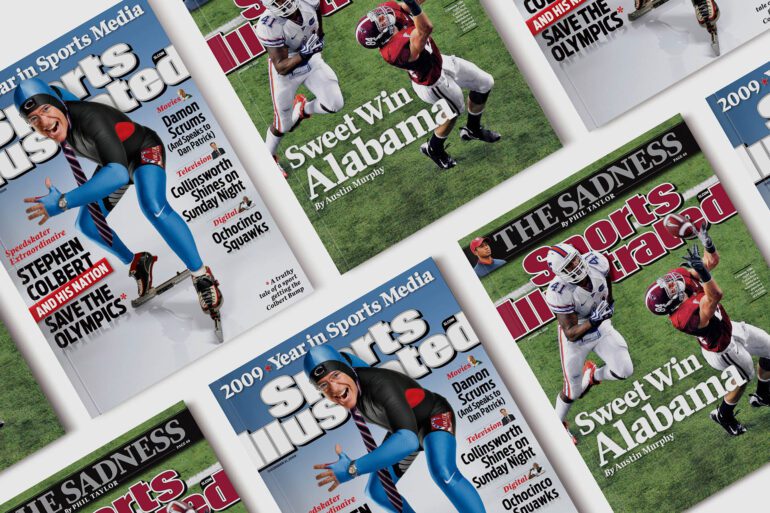TL;DR:
- Sports Illustrated (SI) faced controversy over articles by allegedly fake authors with AI-generated headshots.
- The Arena Group, SI’s parent company, clarified the source of the content in question.
- Futurism revealed evidence that author photos were available on AI-generated image websites.
- Arena Group responded by removing bios of questionable writers and adding disclaimers.
- The content in question originated from a third-party provider, AdVon Commerce.
- AdVon Commerce asserted that the articles were written and edited by humans.
- An internal investigation is ongoing, and the partnership with AdVon Commerce has been terminated.
Main AI News:
In a recent turn of events, Sports Illustrated (SI), a renowned sports magazine, found itself embroiled in a controversy surrounding the authenticity of articles attributed to non-existent authors accompanied by AI-generated headshots. The Arena Group, the parent company responsible for publishing SI, has since taken action to address the issue, shedding light on the source of the problematic content.
The revelation came to light after Futurism, an investigative publication, unearthed evidence suggesting that several authors listed on Sports Illustrated’s website had their profile pictures available for purchase on an AI-generated image website. For instance, the bio of a writer named “Drew Ortiz” claimed he spent his weekends camping, hiking, and tending to his parents’ farm. However, his photo, as featured on SI’s website, was identical to an AI-generated image described as a “neutral white young-adult male with short brown hair and blue eyes.”
Upon Futurism’s inquiry, Arena Group promptly responded by removing the bios of the suspicious writers. Articles that were previously attributed to these allegedly AI-generated authors now carry a disclaimer indicating, “This content is created by a 3rd party,” and “The Sports Illustrated editorial staff is not involved in the creation of this content.”
Arena Group, in a statement to Variety, clarified the situation, stating that the articles in question were product reviews sourced from an external third-party company, AdVon Commerce. AdVon Commerce had assured Arena Group that all the articles had been authored and edited by humans. Arena Group had been in the process of reviewing their partnership with AdVon when the allegations surfaced.
Furthermore, AdVon Commerce’s response revealed that their writers, editors, and researchers adhered to a stringent content creation policy that involved the use of counter-plagiarism and counter-AI software to maintain content integrity. However, AdVon had, on certain occasions, employed pseudonyms for their writers, actions that Arena Group disapproved of.
In response to this breach of trust, Arena Group has taken swift action by not only discontinuing its partnership with AdVon Commerce but also removing the contested content. An internal investigation is underway to ensure the restoration of editorial integrity.
It is worth noting that in 2019, Authentic Brands Group acquired Sports Illustrated from Meredith for $110 million. Subsequently, ABG licensed the media and publishing rights for the SI brand to Maven, which underwent a name change in 2021 to become the Arena Group Holdings. With a portfolio of more than 265 brands, including Sports Illustrated, TheStreet, Parade, Men’s Journal, and HubPages, the Arena Group remains committed to upholding the highest standards of journalistic integrity.
Conclusion:
The Sports Illustrated scandal highlights the importance of maintaining editorial integrity in the digital age. It serves as a reminder for media companies to rigorously vet third-party content providers to avoid reputational damage and uphold trust in their brands.

